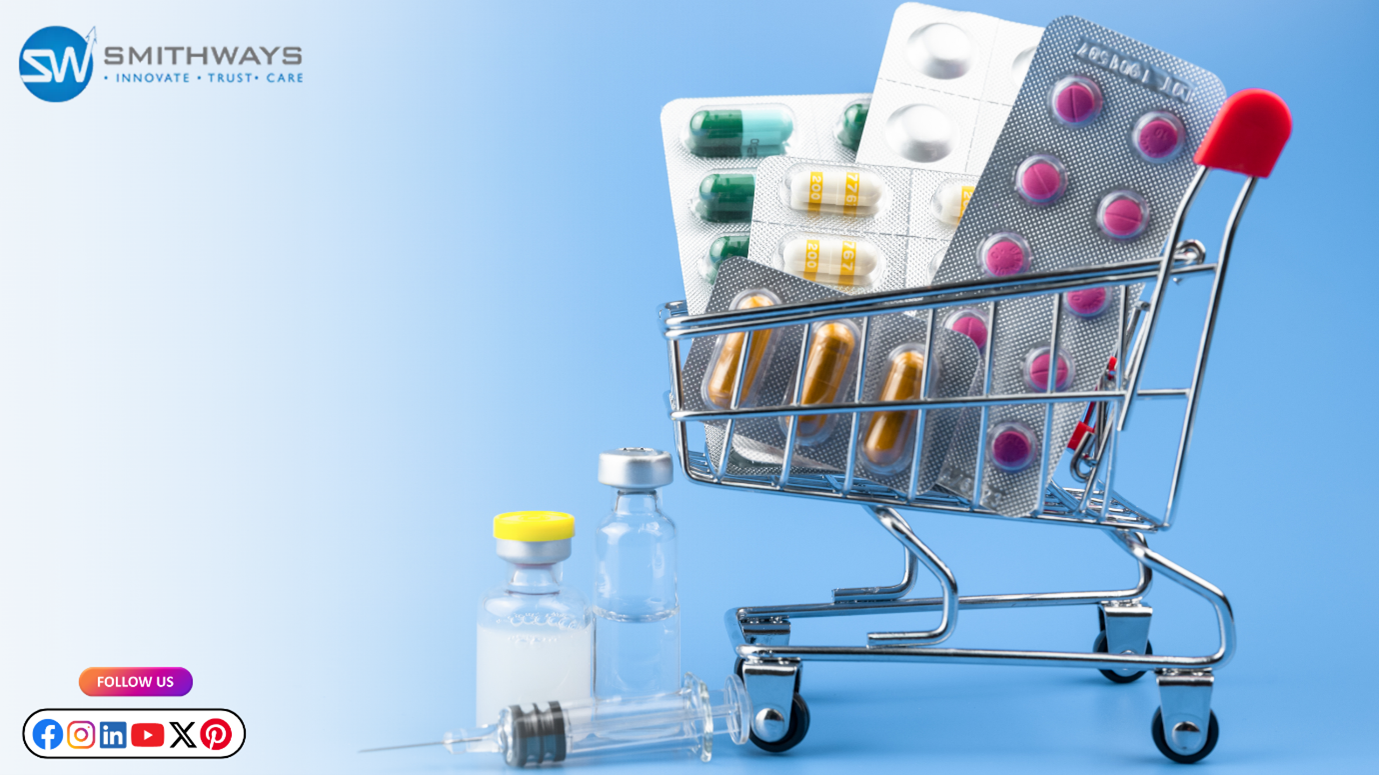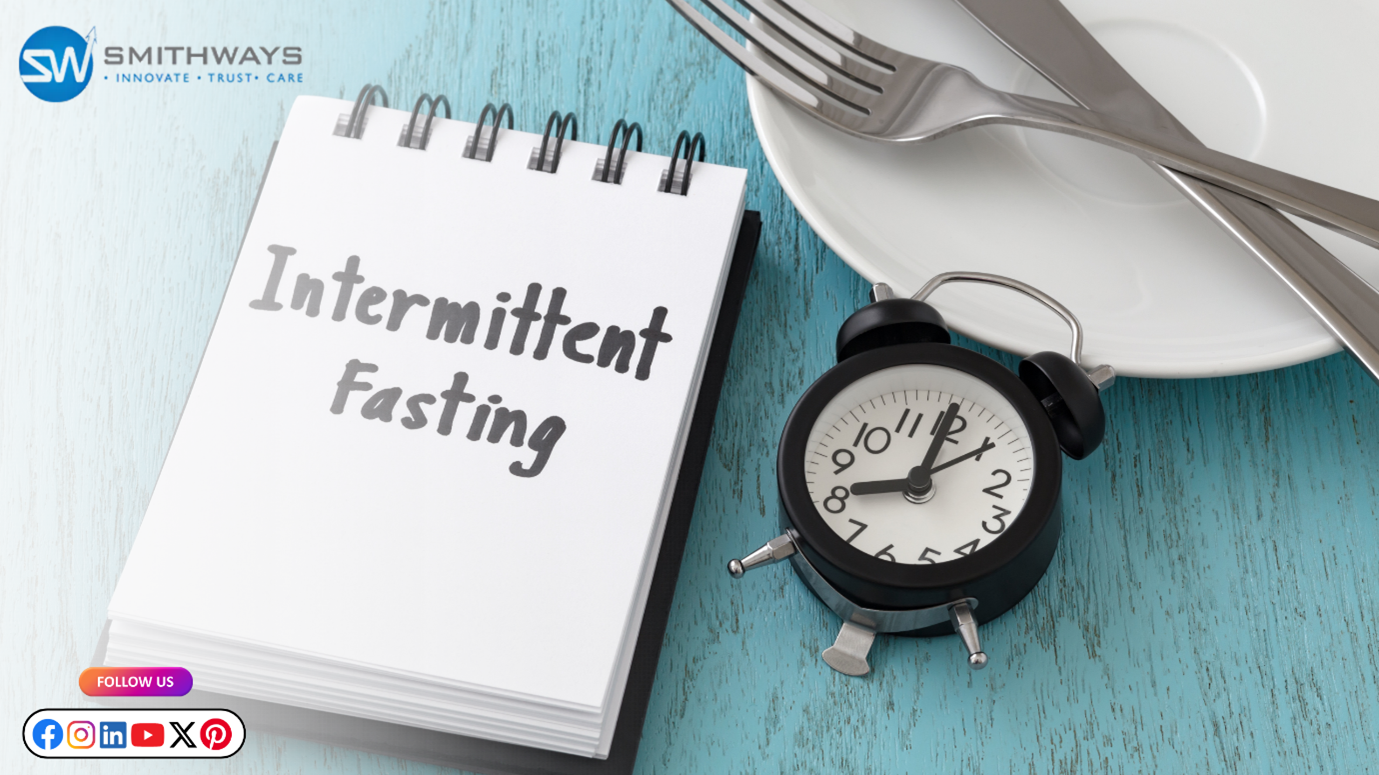Proper use of medications is important for health and well-being, but so is proper storage of medications. In actuality, improper storage procedures can make even the most potent drugs ineffective or, worse, hazardous. Smithways Healthcare, a reputable pharmaceutical company, highlights that safe medicine storage is a duty for every household, not merely a recommendation.
Proper storage of medications, whether they are life-saving prescription drugs or simple pain relievers, helps maintain their effectiveness, prevent mishaps, and encourage health safety at home. This blog will discuss useful tips, typical blunders to avoid, and wise practices that guarantee your medications are always safe, secure, and effective.
Understand Why Safe Storage Matters
Let's examine the why before moving on to the how.
Medicines are chemicals that require particular conditions in terms of light, humidity, and temperature. Extreme heat or moisture exposure can change their makeup, decreasing their effectiveness or possibly having negative effects. Furthermore, improper storage can result in accidental ingestion, which poses serious health risks in homes with children, the elderly, or pets.
That’s why safe medicine storage is not just about keeping pills in a box but ensuring those medications are effective and away from unintended use.
Store in a Cool, Dry, and Dark Place
The majority of drugs should be kept at room temperature, out of direct sunlight, and dry. Keeping them in bathrooms or kitchens, which are subject to temperature and humidity swings, is a common mistake.
Instead, think about these options:
- A bedroom drawer or bedside cabinet
- A locked cabinet in the living room
- A designated medicine box kept in a closet
Make sure to put medications that need to be refrigerated (like insulin or specific eye drops) in the middle shelves, where the temperature is most consistent, rather than near the door. The medication may be harmed by freezing or overheating.
Use Original Containers
Unless a pharmacist or healthcare professional specifically instructs you otherwise, always keep medications in their original containers. The purpose of these containers is to shield the medication from contamination, light, and moisture. Important details like the dosage, usage guidelines, and expiration date are also included.
Additionally, tampering with packaging can raise the possibility of unintentional misuse, particularly if you have several medications that look alike.
Label and Organize Your Medicines
Make a medication organization system. Use unambiguous labels and classify medications, such as daily supplements, antibiotics, painkillers, and medications for chronic illnesses. Consider using pill organizers with day/time compartments if you have elderly family members who take several medications. Just be sure to refill them carefully and keep the original packaging close at hand.
Color-coded labels, such as blue for adults, pink for children, green for elders, etc., can be helpful for families. Organization is a key pillar of safe medicine storage, especially when managing multiple prescriptions or refills.
Check Expiry Dates Regularly
Medications that have expired may become less effective or even dangerous. Make it a monthly routine to check your medicine kit and throw away any expired items.
How can I safely get rid of unused or expired medications?
- Do not flush them unless explicitly stated.
- Crush solid medicines and mix with unappealing substances like coffee grounds or cat litter before sealing them in a plastic bag and tossing them in the trash.
- Some cities or pharmacies offer medicine take-back programs—utilize them.
To protect privacy, always take personal information off of prescription labels before discarding them.
Keep Medicines Out of Reach of Children and Pets
Children's and pets' natural curiosity can result in dangerous mishaps. For this reason, medications should always be:
- Locked in cabinets or high shelves
- Kept in child-resistant containers
- Never referred to as “candy” when giving medicine to kids
Even over-the-counter medications, such as cough syrups or pain relievers, can be lethal in accidental overdoses.
Long-term safety depends on educating children about the risks associated with medications and fostering a family discussion about safe medication storage.
Be Extra Cautious with High-Risk Medications
If taken improperly, some medications have a higher risk of side effects. These consist of:
- Narcotics and painkillers
- Antidepressants or antipsychotics
- Blood thinners
- Hormonal medications
If at all possible, these medications should be kept apart and under lock and key. Keep track of usage and inventory. This is particularly crucial if you have teenagers or guests staying at your house.
Avoid DIY Storage Hacks
DIY medicine storage tips, such as utilizing kitchen jars, ornamental boxes, or repurposed spice containers, are frequently shared on social media. Despite being aesthetically pleasing, these techniques jeopardize the safety of medications.
Adhere to pharmacist-recommended organizers, appropriate labelling, and medical-grade containers. Attractiveness is never more important than safety.
Traveling With Medicines? Do It Right
Use these pointers when you're traveling:
- Carry medicines in their original packaging, especially when flying.
- Pack a small cooler for temperature-sensitive drugs.
- Keep a copy of prescriptions, especially for controlled substances.
- Never store medicines in checked luggage due to possible temperature changes.
Even during short trips, ensure safe medicine storage standards are maintained.
Create a Medicine Storage Routine
Include these in your monthly routine to ensure long-term medication safety at home:
- Refill weekly pill organizers
- Check for expired items
- Reorganize based on new prescriptions
- Sanitize storage boxes
- Reassess storage locations during seasonal changes
Just like you would with car maintenance or bill payments, set a calendar reminder to complete this check.
Educate Family Members
Every member of the household should know where medications are kept, how to use them properly, and what to do in an emergency. Keep allergy information, poison control numbers, and emergency contacts close to the medicine cabinet.
Empowering the family with this knowledge supports the broader goal of safe medicine storage.
Final Summary
Safe medication storage is essential for preserving lives, not just pills. Every tiny step counts toward overall well-being, from picking the ideal location to keeping a labelled, orderly system. Make safe medication storage a top priority for your family's wellness plan since you are a health-conscious household. And keep in mind that Smithways Healthcare's specialists are always coming up with new ideas and educating people so that your medications stay as safe as they are effective.





















